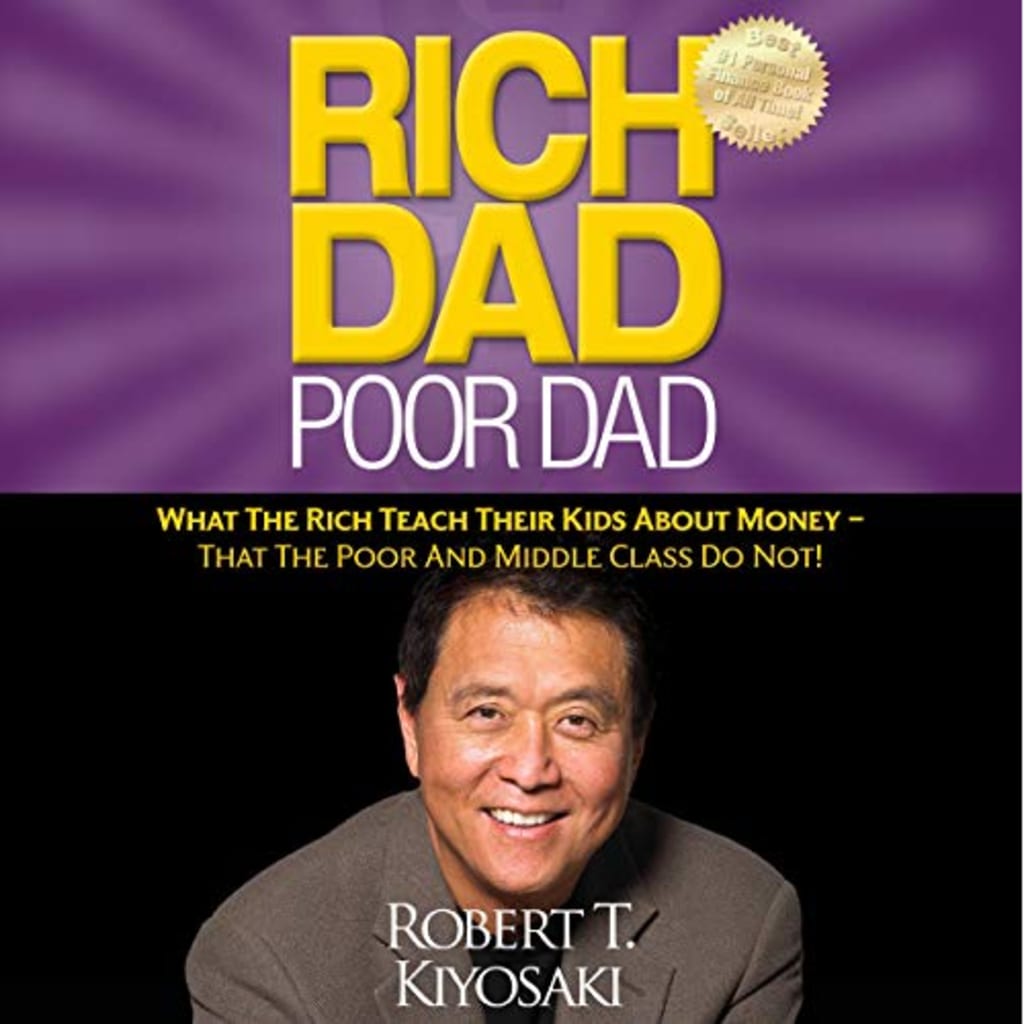RICH DAD POOR DAD
best book for motivation

"Rich Dad Poor Dad" is a renowned personal finance and self-help book authored by Robert Kiyosaki. Initially published in 1997, it quickly gained popularity and achieved bestseller status, leaving a lasting impact on readers worldwide.
Structured as a memoir, the book delves into Kiyosaki's upbringing and presents a stark comparison between the financial ideologies of his two fathers. Kiyosaki's own father, whom he refers to as the "poor dad," was an academic with a strong educational background and a stable job. However, despite these advantages, he struggled to achieve financial prosperity. In contrast, the father of Kiyosaki's best friend, known as the "rich dad," was a self-made millionaire and accomplished entrepreneur.
"Rich Dad Poor Dad" encapsulates key lessons and principles that Kiyosaki learned from his "rich dad" about generating wealth and achieving financial independence. The book emphasizes the importance of financial literacy, asset accumulation, and developing a mindset oriented towards entrepreneurship and investment. Kiyosaki advocates for breaking free from the traditional notion of relying solely on a secure job and encourages readers to explore alternative pathways to financial success.
Through relatable anecdotes and practical examples, "Rich Dad Poor Dad" imparts valuable insights regarding the significance of acquiring assets, understanding the difference between liabilities and assets, and cultivating a proactive approach to financial decision-making. It aims to challenge conventional thinking about money and offers a paradigm shift towards achieving financial freedom.
Since its release, "Rich Dad Poor Dad" has become a timeless resource for individuals seeking to enhance their financial intelligence and gain a new perspective on wealth creation. It continues to be widely regarded as a foundational book in the realm of personal finance and serves as a catalyst for individuals striving to improve their financial well-being.
Financial Literacy: A key theme in "Rich Dad Poor Dad" is the importance of financial literacy. Kiyosaki emphasizes that traditional education often fails to teach essential financial skills, such as managing money, investing, and understanding how money works. He encourages readers to seek financial education and expand their knowledge in order to make informed financial decisions.
The Cash Flow Quadrant: Kiyosaki introduces the concept of the Cash Flow Quadrant, which categorizes individuals into four quadrants: Employee (E), Self-Employed (S), Business Owner (B), and Investor (I). He explains the different mindset and financial strategies associated with each quadrant and highlights the benefits of moving from the left side (E and S) to the right side (B and I) of the quadrant, where wealth-building opportunities are more abundant.
Assets vs. Liabilities: Kiyosaki distinguishes between assets and liabilities, challenging the conventional understanding of these terms. According to his definition, an asset is something that generates income and puts money in your pocket, while a liability is something that takes money out of your pocket. He encourages readers to focus on acquiring income-generating assets that increase their cash flow and reduce liabilities that drain their resources.
The Power of Mindset: The book emphasizes the significance of cultivating a wealthy mindset. Kiyosaki stresses the importance of thinking like an entrepreneur and developing a mindset that is open to taking calculated risks, embracing failure as a learning opportunity, and seeking opportunities for wealth creation. He encourages readers to overcome fear and embrace financial independence.
Real Estate and Investments: "Rich Dad Poor Dad" highlights the role of real estate and investments in wealth creation. Kiyosaki shares his experiences and insights on investing in real estate, stocks, and other assets as a means of building wealth over time. He advocates for learning about different investment vehicles and developing a diversified portfolio.
Financial Independence and Freedom: A central message of the book is the pursuit of financial independence and freedom. Kiyosaki encourages readers to aspire to become financially independent by generating passive income that surpasses their expenses. He emphasizes that true wealth is measured by the ability to sustain one's desired lifestyle without being dependent on a paycheck.
"Rich Dad Poor Dad" has resonated with readers worldwide due to its straightforward writing style, relatable anecdotes, and practical advice. It has inspired many individuals to rethink their approach to money, challenge societal norms, and strive for financial empowerment.





Comments
There are no comments for this story
Be the first to respond and start the conversation.